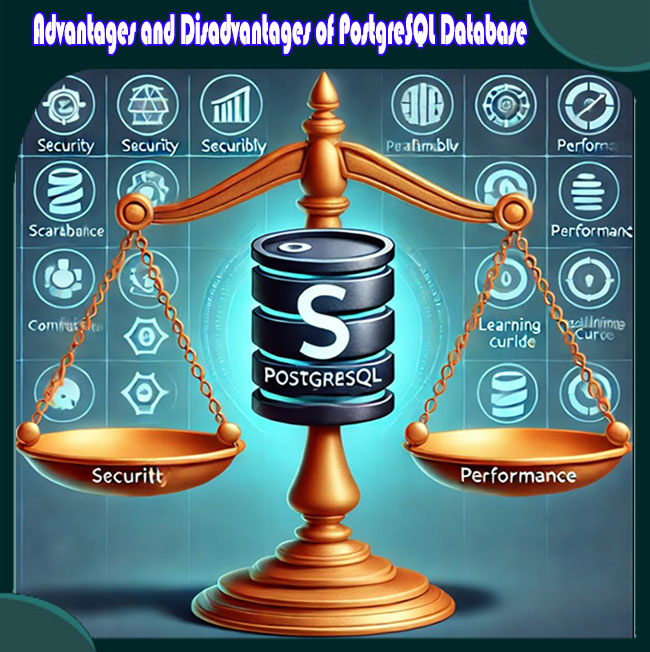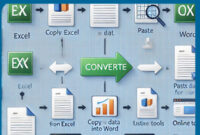Some Advantages and Disadvantages of PostgreSQ Database – GameBoxx friends, PostgreSQL is a reliable database system that has a reputation for accuracy, reliability, data integrity and has been actively developed for approximately 19 years.
Advantages and Disadvantages of PostgreSQL Database
PostgreSQL, commonly referred to as Postgres, is one of the most popular open-source relational databases. Known for its robustness, flexibility, and support for advanced SQL features, PostgreSQL is favored by developers for both small and large-scale applications. However, like any technology, it has its pros and cons. In this article, we’ll delve into the advantages and disadvantages of using PostgreSQL as your database solution.
What is PostgreSQL?
PostgreSQL is a powerful, open-source object-relational database system that has been in development for over 30 years. It is known for its advanced features, strong performance, and compliance with the SQL standard. PostgreSQL is often used in web development, data warehousing, and various large-scale enterprise applications.
Now, let’s dive into the key advantages and disadvantages of PostgreSQL.
Advantages of PostgreSQL
1. Open-Source and Free
One of the biggest advantages of PostgreSQL is that it’s open-source and free to use. This makes it accessible for both individual developers and large organizations without worrying about licensing costs.
2. SQL Compliance
PostgreSQL is one of the most SQL-compliant databases available. It adheres closely to the SQL standard and supports advanced SQL features, including subqueries, triggers, views, and transactional integrity. This makes it suitable for complex applications requiring high precision and flexibility in database operations.
3. Advanced Data Types and Extensibility
PostgreSQL supports a wide range of data types, including arrays, JSON, XML, and more. Additionally, PostgreSQL allows users to define their own data types, functions, and operators, making it highly extensible. This flexibility enables it to handle unstructured data efficiently, which is crucial for applications like IoT and data analytics.
4. ACID Compliance and Data Integrity
PostgreSQL is fully ACID (Atomicity, Consistency, Isolation, Durability) compliant, ensuring data integrity and transactional consistency. This makes it ideal for applications that require reliability and precision, such as financial systems and e-commerce platforms.
5. Strong Security Features
PostgreSQL offers robust security features, including user authentication, role-based access controls, SSL encryption, and data masking. These security measures help protect sensitive data, making PostgreSQL suitable for industries with strict security requirements, such as healthcare and finance.
6. Scalability and Performance
PostgreSQL performs exceptionally well with large datasets and can handle complex queries efficiently. It supports horizontal scaling (with replication) and vertical scaling (with partitioning), making it a good choice for applications expecting to grow over time. Additionally, features like parallel query execution and indexing improve performance.
7. Multi-Version Concurrency Control (MVCC)
PostgreSQL uses MVCC to manage concurrent transactions without locking, ensuring smooth multi-user access to the database. This feature enhances performance by minimizing transaction conflicts and is crucial for real-time, high-traffic applications.
Disadvantages of PostgreSQL
While PostgreSQL is a powerful tool, it has its drawbacks. Understanding these limitations is important for making an informed decision when choosing a database system.
1. Complexity and Learning Curve
Compared to other relational databases, such as MySQL or SQLite, PostgreSQL has a steeper learning curve. Its advanced features and complex configurations may be overwhelming for beginners. Mastering its full capabilities often requires a deeper understanding of database management systems.
2. Resource-Intensive
PostgreSQL tends to be more resource-intensive than lighter databases like MySQL. Running it on a system with limited resources may lead to slower performance or even crashes, especially under heavy load. For small applications with limited server capacity, this can be a significant drawback.
3. Slower Write Speed
PostgreSQL is designed to prioritize data integrity and consistency over raw speed. While it offers excellent performance for read-heavy operations, it may exhibit slower write speeds compared to databases like MySQL, especially under heavy workloads. Applications with high write requirements, such as logging systems or real-time analytics, may find this to be a bottleneck.
4. Fewer Hosting Options
While PostgreSQL is gaining popularity, it still has fewer hosting options compared to MySQL or Microsoft SQL Server. Many managed hosting services or cloud platforms offer limited support for PostgreSQL, which can limit deployment options.
5. Upgrading Can Be Difficult
Upgrading to newer versions of PostgreSQL can be a challenge, especially for large, complex databases. The process often involves downtime and manual intervention, which can be disruptive to businesses relying on continuous database availability.
6. Limited Built-in Support for Certain Features
Although PostgreSQL is highly extensible, it lacks certain built-in features that are available in other databases. For instance, native sharding, a technique for distributing data across multiple servers, is not fully supported out of the box. Users may need to rely on third-party extensions to achieve the desired functionality, which could add to the complexity.
When to Use PostgreSQL
PostgreSQL is a great choice for applications that require complex queries, data integrity, and scalability. It’s well-suited for industries like finance, healthcare, and education, where data accuracy and security are paramount. Its support for advanced data types and extensibility also makes it ideal for handling unstructured data and real-time analytics.
Here are some scenarios where PostgreSQL shines:
- Enterprise Applications: PostgreSQL can handle large amounts of data and complex transactions, making it ideal for enterprise resource planning (ERP) and customer relationship management (CRM) systems.
- Data Warehousing: Its strong SQL support and ability to handle large datasets make it perfect for data warehousing solutions.
- IoT and Big Data: With its support for various data types and ability to scale, PostgreSQL is great for applications handling big data and Internet of Things (IoT) data.
Conclusion
PostgreSQL offers a powerful and flexible solution for a wide range of applications, especially those that require advanced features and strong data integrity. However, it’s important to weigh its advantages and disadvantages before deciding whether it’s the right database for your project. For developers and businesses that need a reliable, scalable, and highly secure database system, PostgreSQL is an excellent choice.
By carefully considering both the benefits and the challenges, you can make an informed decision about whether PostgreSQL meets the needs of your specific project or organization.



